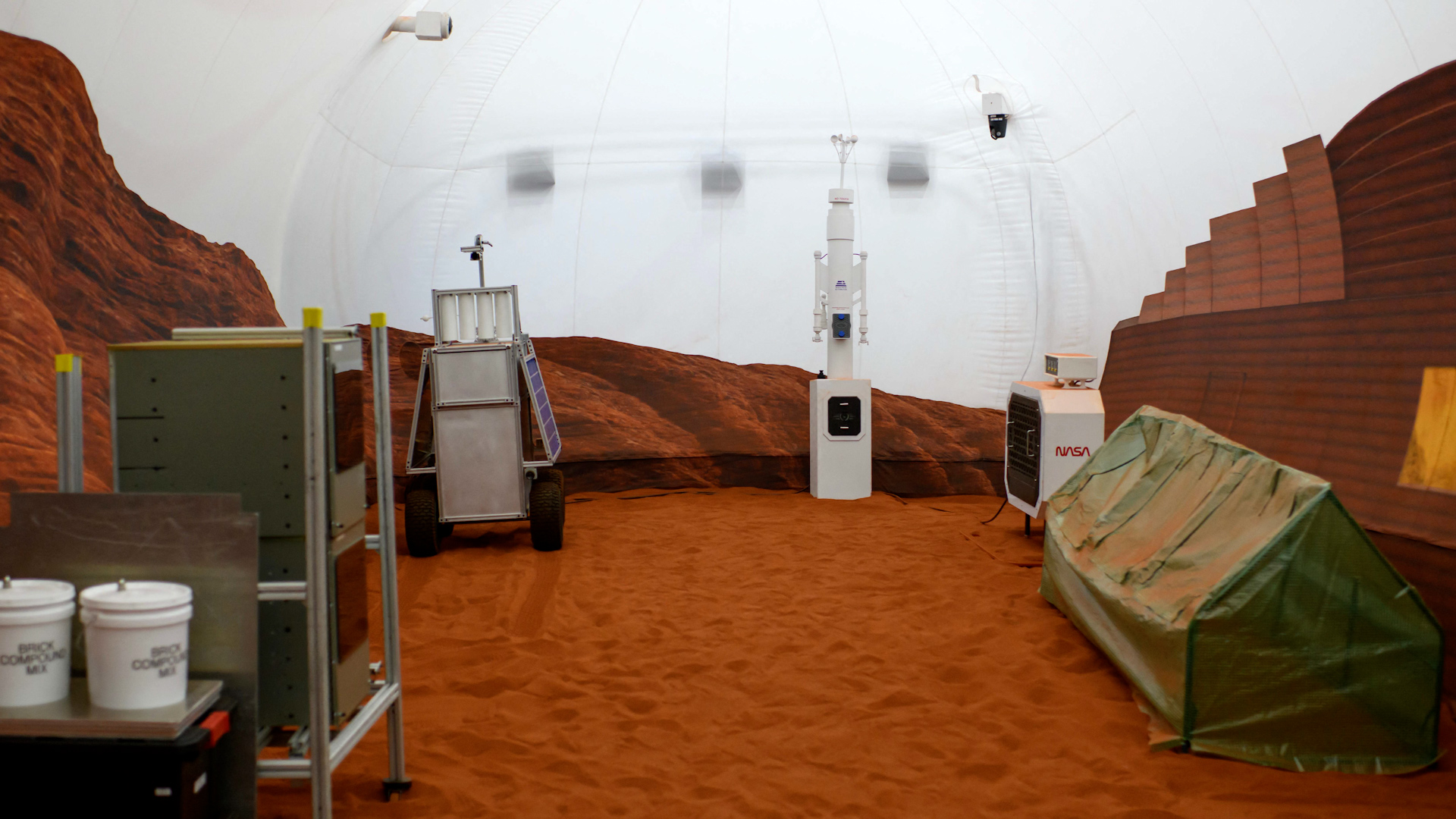
[KARAH RUCKER]
FINALLY THIS MORNING —
FOUR NASA VOLUNTEERS EMERGED FROM A YEAR-LONG MARS SIMULATION AT HOUSTON’S JOHNSON SPACE CENTER, TESTING LIFE ON THE RED PLANET WITHOUT EVER LEAVING EARTH.
INSIDE A 3D-PRINTED 1,7000 SQUARE-FOOT HABITAT FOR 378 DAYS, THE CREW TACKLED CHALLENGES LIKE ISOLATION, RESOURCE LIMITS AND EVEN CONDUCTED SIMULATED SPACEWALKS — MIMICKING WHAT A REAL MARS MISSION WOULD FEEL LIKE.
NASA HAS ANNOUNCED PLANS FOR TWO MORE SIMULATED “MARS” MISSIONS — WITH THE NEXT SET TO BEGIN IN THE FIRST HALF OF 2025.











